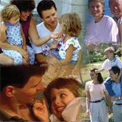Mosquito Pools Test Positive for West Nile Virus
Posted June 29, 2017 by Michael Hokanson
Partners in Houston County notified North Central Health District (NCHD) that tests have positively identified West Nile Virus in mosquito pools collected to test the insects for diseases. The infected mosquitoes were trapped and tested during regular mosquito monitoring activities.
“We have been notified of a group of mosquitoes with evidence of West Nile Virus” said NCHD Epidemiologist Amber Erickson. “At this time, we do not have any reported cases of the virus in people. We want to prevent the virus spreading which can be done by following our guidelines for mosquito prevention.”
NCHD is responding by increasing trapping and surveillance of mosquitoes in the surrounding area.
“We are seeing a larger number of Culex species and Aedes albopictus in our traps compared to other species. Both of these are vectors for West Nile Virus as well as other mosquito-borne dieseases,” said NCHD Vector Surveillance Coordinator Tremayne Mitchell. “Everyone can do their part by getting rid of standing water where mosquitoes breed and practicing personal protection from mosquitoes.”
West Nile Virus is most commonly spread by infected mosquitoes feeding on humans. The illness affects people differently. Most people infected with West Nile Virus will not develop any symptoms. The 20 percent of people that do show symptoms will usually develop a fever along with headaches, vomiting, diarrhea or a rash. Most people with these symptoms recover completely, but weakness and fatigue can last for months after the more severe symptoms disappear.
The disease is associated with more severe symptoms in rare cases. Less than one percent of those infected with West Nile Virus develop neurological illness like encephalitis or meningitis, characterized by inflammation of the brain or surrounding tissues. Symptoms of these severe illnesses include fever, headache, neck stiffness, disorientation, tremors, seizures, coma or paralysis. Though these outcomes of West Nile Virus can happen to anyone, people over the age of 60 and people with certain medical conditions are more at risk to develop these neurological disorders. About ten percent of who develop neurological infection from West Nile Virus will die.
West Nile Virus has no vaccine or specific treatments. The symptoms can be treated with over-the-counter medication to reduce fever and relieve pain and soreness. Always talk to your healthcare provider about introducing new medicine, especially if you have another medical condition or take prescription medication. If the virus leads to more severe symptoms, patients should be hospitalized to receive support treatment.
NCHD urges residents to recognize the importance of personal prevention measures against mosquitoes. You can actively protect yourself from mosquitoes by practicing the “Ds of Prevention.”
- Dusk/Day/Dawn – Mosquitoes with the potential to spread West Nile Virus are usually active at dusk and dawn, so limit or avoid outdoor activities during these hours.
- Dress – Loose-fitting clothes, long-sleeved shirts and long pants reduce the amount of exposed skin and reduce the chances of mosquito bites.
- DEET – If you wear clothes that exposes skin, make sure to cover that skin with an insect repellant containing DEET to keep mosquitoes away.
- Doors – Make sure doors and windows are in good condition and fit tightly. Repair any damaged or torn screens as soon as possible.
One of the easiest actions you can take to prevent mosquitoes is to get rid of any standing water on your property. Mosquitoes only need a small amount of water to lay their eggs. NCHD urges residents to Tip N Toss any water around your house. Look for receptacles like tires, plant pots, pool toys or any other objects that can collect water. For water you cannot remove, treat it with larvicide to prevent mosquitoes from using it as breeding grounds. Each of our county health departments offers free larvicide tablets to homeowners while supplies last. Find your nearest health department at NCHD52.org/Locations.
Follow us on Facebook, Twitter and Instagram to receive news, emergency messages and health information!


 Contact Us
Contact Us Locations
Locations Job Openings at North Central Health District
Job Openings at North Central Health District Internships
Internships Board of Health
Board of Health Cost and Insurance
Cost and Insurance Privacy Policy
Privacy Policy Teens & Adults
Teens & Adults For Children
For Children Other Programs
Other Programs County Environmental Health Offices
County Environmental Health Offices Chemical Hazards
Chemical Hazards Tourist Accommodations
Tourist Accommodations Food Service
Food Service Rabies Control
Rabies Control Lead Poisoning Prevention
Lead Poisoning Prevention Body Art
Body Art Land Use
Land Use Swimming Pool Program
Swimming Pool Program Water Testing for Private Wells
Water Testing for Private Wells Environmental Health Complaints
Environmental Health Complaints Georgia Food Recall Alerts
Georgia Food Recall Alerts Personal & Family Preparedness
Personal & Family Preparedness Emergency Preparedness for Functional & Access Needs
Emergency Preparedness for Functional & Access Needs Severe Weather Preparedness
Severe Weather Preparedness Emergency Preparedness Training
Emergency Preparedness Training Medical Reserve Corps
Medical Reserve Corps Regional Healthcare Coalitions
Regional Healthcare Coalitions Strategic National Stockpile/Medical Countermeasures
Strategic National Stockpile/Medical Countermeasures